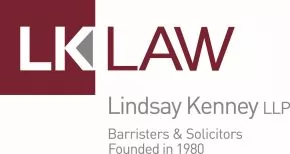In today's digital world, your estate plan isn't complete without addressing digital assets. From social media accounts to cryptocurrency, these assets add complexity to estate planning but are essential to consider for a comprehensive plan. Here's how to ensure your digital legacy is secure and accessible to your loved ones or designated representatives.
What Are Digital Assets?
Digital assets include:
- Social media profiles
- Email accounts
- Online banking and investment platforms
- Cryptocurrencies and NFTs
- Cloud-based intellectual property, such as photos or manuscripts
- These assets often have specific terms of service (ToS) agreements and privacy laws that can complicate access after your passing.
Best Practices for Estate Planning with Digital Assets
1. Create a Digital Asset Inventory
Start by listing all your digital assets, along with access details like account numbers and instructions. This inventory is a great opportunity to review and improve your "digital hygiene" by:
- Deleting unnecessary accounts
- Updating passwords
- Enabling two-factor authentication (2FA)
- Reviewing privacy settings
2. Use Multiple Wills to Simplify Administration
If you are using multiple wills, ensure digital assets are included in the probated will. Many service providers, such as Google or Apple, require a court order before granting access to accounts or assets. By placing digital assets in the probated will, you empower your executor to address these requirements effectively.
3. Incorporate Digital Assets into Your Estate Plan
When working with your estate planner, ensure digital assets are addressed explicitly:
- Provide clear definitions for digital devices, online accounts, and intellectual property.
- Include a consent clause for privacy legislation, enabling your executor or trustee to access and manage your accounts.
- Specify how assets should be handled—for example, closing, gifting, or liquidating accounts.
4. Use Digital Legacy Tools
Many platforms now offer tools to manage accounts after death:
- Facebook/Instagram: Memorialization settings
- Google: Inactive Account Manager
- Apple: Digital Legacy feature
These tools allow you to appoint individuals to manage your accounts. Additionally, independent services, such as digital vaults, can securely store login credentials and sensitive data.
5. Avoid Password Sharing
Sharing passwords might seem practical, but it often violates ToS agreements and increases the risk of security breaches. Instead:
- Use password managers to organize and store your credentials securely.
- Consider crypto-specific tools like "dead man's switch" technology for private keys.
6. Appoint a Digital Executor
Consider appointing a digital executor—a person with the technical and legal expertise to manage digital assets. They can ensure your wishes are carried out smoothly and securely.
Navigating Privacy Laws and Jurisdictional Challenges
Digital assets are governed by privacy laws and ToS agreements that vary across platforms and countries. For example:
- S. laws, such as the Stored Communications Act (SCA), may restrict access to accounts without a court order.
- Canadian provinces, such as Saskatchewan and PEI, have enacted legislation empowering fiduciaries to access digital assets under certain conditions.
- Work with a professional to ensure your estate plan complies with applicable laws and addresses cross-jurisdictional challenges
Why This Matters
Digital assets are an integral part of modern life. By planning ahead, you ensure your loved ones won't face unnecessary legal or technical obstacles during an already difficult time. Take the steps now to inventory your digital assets, incorporate them into your estate plan, and utilize available tools to manage your digital legacy effectively.
About Mackrell International – Canada - Lindsay Kenney LLP is a full service business law firm with offices in Vancouver and Langley, BC and a member of Mackrell International. Mackrell International – Canada is comprised of four independent law firms in Alberta, British Columbia, Ontario and Quebec. Each firm is regionally based and well-connected in our communities, an advantage shared with our clients. With close relations amongst our Canadian member firms, we are committed to working with clients who have legal needs in multiple jurisdictions within Canada.
This article is intended to be an overview and is for informational purposes only.


